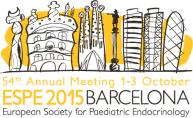
54th Annual ESPE (ESPE 2015)
Barcelona,
Spain
01 Oct 2015 - 03 Oct 2015
Barcelona, Spain; 1-3 October 2015
Further information



